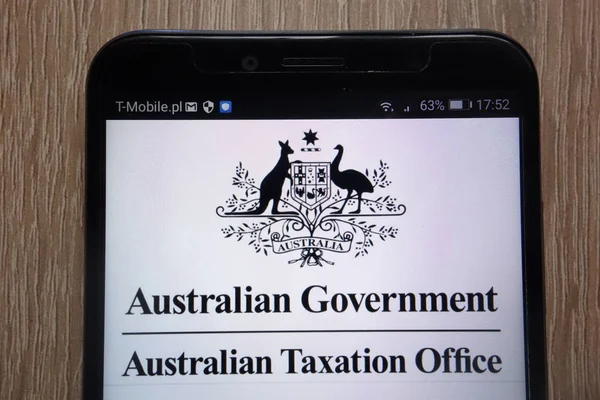
When 76-year-old Margaret from Ballarat checked her myGov account last month, she got the shock of her life. A debt of $2,847 had suddenly appeared—dated from 2007, when she was still running her small bookkeeping business. No explanation, no warning, just an amount owing that would eat into her pension for months to come.
Margaret isn't alone. The Australian Taxation Office is pursuing a new batch of taxpayers over decades-old debts, drawing comparisons to its widely criticised and suspended 'robotax' initiative.
For many Australian seniors, these surprise debt notices are causing stress, confusion, and financial hardship at a time when they can least afford it.
In this article
The Return of 'Robotax' - What's Happening Now
An ATO spokesperson said the agency launched a new initiative in August to start 'progressively including debts that were previously placed on hold in account balances'.
This means thousands of Australians are suddenly discovering debts they may have forgotten about, or never knew existed in the first place.
The scale of this operation is staggering. Guardian Australia led an investigation revealing the ATO letter campaign was hoping to collect more than $15 billion from up to 1.8 million entities—mostly individuals—from debts that were in some cases said to be decades old.
'This action they're undertaking is unreasonably heavy-handed and unfair, not to mention psychologically unsettling given the burden of proof is bizarrely on the taxpayer'
But here's where it gets particularly concerning for older Australians. Over 600 taxpayers fell afoul of an automated system the ATO used to revive old debts and get them paid out of tax refunds, after software bugs caused miscalculations.
Some people found themselves owing money they never actually owed, while others discovered debts that should have remained dormant.
The Growing Debt Mountain
To understand why the ATO is pursuing these old debts so aggressively, we need to look at the bigger picture. Collectable debt has increased over the past 4 years from $26.5 billion in June 2019, to $50.2 billion by June 2023—this is an 89 per cent increase.
That's more than doubling in just four years, creating enormous pressure on the tax office to collect what it can.
The Inspector-General of Taxation has raised serious concerns about this approach. The ATO's debt book jumped by 77.6 per cent to $34.1 billion in just four years, with a small number of taxpayers responsible for a large portion of the debt, a new report by the tax watchdog has revealed.
Why Seniors Are Particularly Vulnerable
The fundamental problem with chasing decades-old debts is that most people simply don't have the paperwork to defend themselves.
Generally, you need to keep your records for 5 years from the date you lodge your tax return. Yet some of these debts date back 15 or even 20 years.
Think about it: if you're 70 today and the ATO is chasing a debt from 2006, you would have been 51 then.
You might have moved house multiple times, downsized, dealt with the death of a spouse, or simply followed the ATO's own advice and thrown out old records after five years.
Record Keeping Reality Check
ATO requires records kept for 5 years after lodging returns
Some debts being pursued are 15-20 years old
Many seniors have downsized, moved, or disposed of old records
Burden of proof is on taxpayer to contest the debt
The psychological impact cannot be understated. Research from the United States shows that one out of every three complaints filed with the CFPB is related to an incident with a debt collector.
For seniors on fixed incomes, an unexpected debt notice can cause genuine panic about their financial security.
Understanding Your Rights and Protections
Here's some crucial information that many seniors don't know: your pension and other government benefits have strong legal protections.
Social Security income, pensions, VA benefits, and disability payments are typically exempt from debt collection.
Debt collectors cannot garnish these funds to satisfy consumer debts such as credit card balances or medical bills.[/p]
However, it's important to note that the ATO does have some special powers. They can automatically offset any tax refunds you're entitled to against old debts. But they cannot simply take money from your pension payments.
What to Do If You're Contacted
If you receive a debt notice for an old amount, don't panic, but don't ignore it either. Here's your action plan:
Step 1: Verify the Debt
Contact the ATO and ask for detailed information about when the debt was incurred, what it relates to, and how it was calculated. You have the right to this information.
Step 2: Check Your Records
Look through any old paperwork you might have. Even if you don't have everything, partial records can help establish your case.
Step 3: Consider Professional Help
If the amount is significant, consider engaging a tax agent or contacting the Tax Ombudsman. Many seniors qualify for free legal aid services.
Example Scenario
- Real-World Success Story: When Bill from Shepparton received a $3,200 debt notice for 2008, he felt overwhelmed. He contacted a community legal centre, which helped him request detailed information from the ATO. It turned out the debt was based on incorrectly calculated PAYG instalments. With proper documentation, the debt was reduced to $340, and even that was waived due to his financial circumstances.
Step 4: Know Your Dispute Rights
You can formally object to an ATO decision if you believe it's wrong. The process is free and the ATO must investigate your concerns.
The Ombudsman Steps In
The good news is that taxpayer advocates are taking notice. The Inspector-General of Taxation and Taxation Ombudsman has been highly critical of the ATO's approach, describing it as causing 'unnecessary distress' to vulnerable taxpayers.
New guidelines have been issued requiring government agencies to handle debt collection with more sensitivity, particularly for older Australians who may be dealing with cognitive issues or financial hardship.
Did you know?
Did you know?
The ATO Commissioner has discretionary powers to waive debts in cases of genuine hardship or where collection costs would exceed the debt amount. Many taxpayers don't know these powers exist or how to access them.
Getting Help and Support
If you're dealing with an ATO debt issue, you're not alone. Several organisations can provide assistance:
- Tax Ombudsman: 1800 060 216 (free and independent)
- National Debt Helpline: 1800 007 007 (free financial counselling)
- Legal Aid: Contact your state Legal Aid office for free advice
- Community Legal Centres: Many offer free tax advice for seniors
The Robodebt Connection
Many observers are drawing parallels between this debt collection drive and the infamous robodebt scheme that was eventually found to be unlawful. Like robodebt, the current system places the burden of proof on taxpayers who may lack the documentation needed to defend themselves.
The key difference is that these tax debts are generally real—they're not manufactured by faulty algorithms. However, the aggressive collection methods and the targeting of vulnerable people follow a disturbingly similar pattern.
Looking Forward: What Needs to Change
Experts are calling for significant reforms to how the ATO handles old debts. Suggestions include:
- Implementing a statute of limitations on very old debts
- Requiring the ATO to provide clear evidence before pursuing collection
- Improving communication and reducing the aggressive tone of debt notices
- Better protection for vulnerable taxpayers, including automatic hardship reviews for pensioners
Your Rights as a Senior Taxpayer
- Your pension and government benefits are protected from debt collection
- You have the right to detailed information about any claimed debt
- Professional help is available, often for free
- The ATO has discretionary powers to waive debts in hardship cases
- You can formally dispute any debt you believe is incorrect
- The Tax Ombudsman provides free, independent assistance
The Bottom Line
While the ATO has a legitimate role in collecting taxes owed, the current approach to decades-old debts is causing unnecessary distress to many Australian seniors.
The system seems designed to pressure people into paying rather than helping them understand and properly contest debts that may be incorrect or unreasonable.
If you're facing this situation, remember that you have rights and support is available. Don't let fear or confusion pressure you into accepting a debt that might not be valid. Your retirement should be a time of security, not stress over long-forgotten paperwork.
The conversation about reforming this system is ongoing, but in the meantime, knowledge and support are your best defences.
Whether you're dealing with a surprise debt notice or want to be prepared for the possibility, understanding your rights and knowing where to get help can make all the difference.
What This Means For You
Have you or someone you know been affected by these ATO debt collection activities? We'd love to hear your experiences and any advice you might have for fellow seniors navigating this challenging situation. Share your story in the comments below.
Original Article
https://www.theguardian.com/austral...-pursuing-more-taxpayers-for-decades-old-debt
The ATO's version of Robodebt still being discussed—but Ombudsman lays down law | PS News
Cited text: Guardian Australia led an investigation revealing the ATO letter campaign was hoping to collect more than $15 billion from up to 1.8 million entities ...
Excerpt: Guardian Australia led an investigation revealing the ATO letter campaign was hoping to collect more than $15 billion from up to 1.8 million entities—mostly individuals—from debts that were in some cases said to be decades old.
https://psnews.com.au/the-atos-vers...discussed-but-ombudsman-lays-down-law/131570/
ATO bugs incorrectly revived 600 historic tax debts—iTnews
Cited text: Over 600 taxpayers fell afoul of an automated system the ATO used to revive old debts and get them paid out of tax refunds, after software bugs caused...
Excerpt: Over 600 taxpayers fell afoul of an automated system the ATO used to revive old debts and get them paid out of tax refunds, after software bugs caused miscalculations.
https://www.itnews.com.au/news/ato-bugs-incorrectly-revived-600-historic-tax-debts-609520
Addressing collectable tax debt—Tax Institute's Tax Summit 2023 | Australian Taxation Office
Cited text: Collectable debt has increased over the past 4 years from $26.5 billion in June 2019, to $50.2 billion by June 2023—this is an 89 per cent increase and a tr...
Excerpt: Collectable debt has increased over the past 4 years from $26.5 billion in June 2019, to $50.2 billion by June 2023—this is an 89 per cent increase.
https://www.ato.gov.au/media-centre/addressing-collectable-tax-debt-tax-institute-s-tax-summit-2023
ATO’s $34bn debt book outpaces economic growth: Inspector-General of Taxation | Accountants Daily
Cited text: The ATO’s debt book jumped by 77.6 per cent to $34.1 billion in just four years, with a small number of taxpayers responsible for a large portion of t...
Excerpt: The ATO's debt book jumped by 77.6 per cent to $34.1 billion in just four years, with a small number of taxpayers responsible for a large portion of the debt, a new report by the tax watchdog has revealed.
https://www.accountantsdaily.com.au...economic-growth-inspector-general-of-taxation
Documents to support and verify your claims | Australian Taxation Office
Cited text: Generally, you need to keep your records for 5 years from the date you lodge your tax return.
Excerpt: Generally, you need to keep your records for 5 years from the date you lodge your tax return.
https://www.ato.gov.au/individuals-...p/documents-to-support-and-verify-your-claims
Guide to Elderly Debt Collection Laws | Solo Blog
Cited text: One out of every three complaints filed with the CFPB is related to an incident with a debt collector.
Excerpt: one out of every three complaints filed with the CFPB is related to an incident with a debt collector.
https://www.solosuit.com/posts/guide-elderly-debt-collection-laws
Guide to Elderly Debt Collection Laws | SoloSuit Blog
Cited text: One out of every three complaints filed with the CFPB is related to an incident with a debt collector.
Excerpt: one out of every three complaints filed with the CFPB is related to an incident with a debt collector.
https://www.solosuit.com/posts/410
Elderly Debt Collection Laws: What Seniors and Families Should Know
Cited text: One of the most important protections for seniors is that Social Security income, pensions, VA benefits, and disability payments are typically exempt ...
Excerpt: Social Security income, pensions, VA benefits, and disability payments are typically exempt from debt collection.
https://www.advancedcb.com/post/elderly-debt-collection-laws-what-seniors-and-families-should-know







